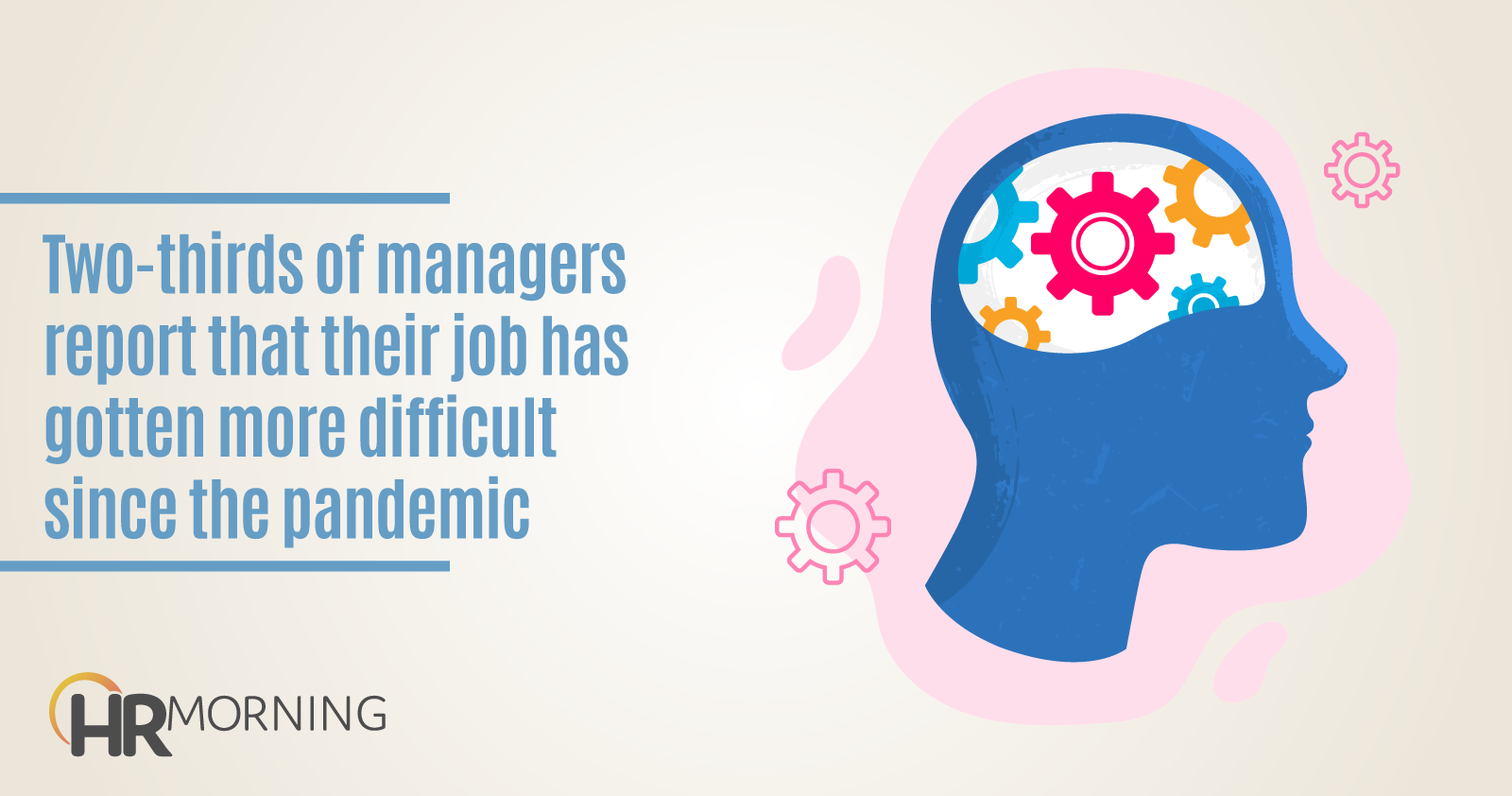Across the board, HR is seeing a decrease in employee engagement and overall well-being for employees. Many factors, such as the pandemic, economic uncertainty and the cost-of-living crisis mean that employees are showing up to work stressed, depressed and anxious.
With well-being intrinsically tied to the workplace, a lack of support and resources can have effects on productivity, morale and culture.
Although many workplaces are making strides towards supporting employees’ mental health, a new study from Lyra revealed that one group is being left out of the conversation when they need it most: managers.
Managers are under pressure
Managers and supervisors are often the first point of contact for employees who are struggling with work stress or personal stress that seeps into work. Aside from day-to-day stress, a shocking 86% of employees said they’ve faced at least one mental health struggle in the past year, yet only one-third reported receiving the appropriate support and care in that time.
But when employee mental health falls, managers’ mental health may take a hit too. Sixty-four percent of managers and supervisors reported their mental health affected their ability to do their job over the past year.
Many managers are feeling under-equipped, with nearly half questioning if they had the resources and training to support team members with their mental health. Employees seem to agree with that sentiment, with 58% believing their manager would benefit from a workforce mental health training program.
This has all culminated in managers feeling overwhelmed and under-prepared. In fact, more supervisors (30%) reported actively looking to change employers within the next year than non-supervisors (22%).
The report also found that:
- 73% of benefits leaders said their organizations had increased training and resources since the onset of COVID-19 to help supervisors support their employees’ mental health, but only 52% of supervisors agree, and
- Over a quarter (27%) of managers ranked “work-related managerial stress” as one of the top three factors impacting their mental health.
How HR can support managers’ mental health
Supporting managers’ mental health is a no-brainer for HR. The way managers present themselves in the workplace can affect the whole team. A manager who is feeling overwhelmed and under-supported may hurt the entire team’s morale and lead to disengagement trends like quiet quitting.
Here are three ways HR can help support managers’ mental health.
- Benefits. One key part of mental health support is getting the appropriate care that you need to help cope in healthy ways. Although providing an Employee Assistance Program (EAP) is a great start, it’s also important to ensure that your benefits provide access to more in-depth mental health treatment for those with complex or chronic issues.
- Transparency. Although managers’ mental health is suffering they may be less likely to share their struggles for fear their ability to lead and manage a team may be questioned. Support a culture of openness and transparency regarding mental health in the workplace so employees and managers can get the help they need before it turns into a full-blown mental health crisis.
- Training. The disconnect between benefits leaders and managers regarding mental health resources shows there are some key parts of training and resources missing to help employees’ and managers’ mental health. Consider implementing annual training and providing resources to managers to not only support their employees’ mental health but their own as well.


